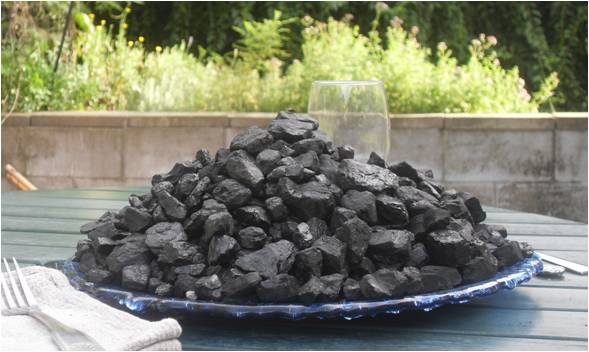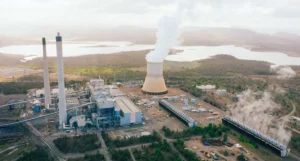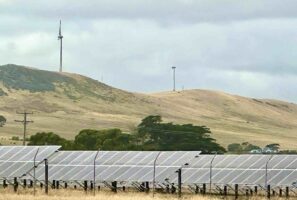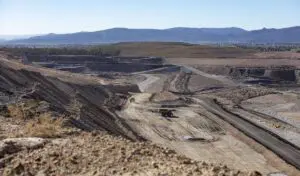BHP has announced it wants to end its membership of the World Coal Association, has put the US Chamber of Commerce on notice but is in a forgiving mood when it comes to the climate and energy policy sins of the Minerals Council of Australia (MCA).
The MCA, BHP decided, has up to 12 months to lift its climate and energy policy game.
As for the New South Wales Minerals Council (NSWMC) and the Queensland Resources Council (QRC), which have been relentless champions for new coal power stations and for crackdowns on non-profit groups, BHP couldn’t find anything to cause it concern.
BHP’s review of the advocacy activities of the lobby groups it belongs to was only initiated after the Australasian Centre for Corporate Responsibility (ACCR) submitted a resolution to the company’s shareholders urging a review of direct and indirect advocacy on climate and energy policies.
The ACCR proposed the review cover the period between 2012 and 2017 and sought the termination of the membership of any industry lobby group promoting policies at odds with the company’s.
In particular, the ACCR’s resolution drew attention to BHP’s support for a price on carbon, its support for the Paris Agreement and the Finkel Review into Australia’s power sector and the need consider groups which were promoting new coal plants and public subsidies for them.
BHP opposed the resolution but conceded it would undertake a review of the advocacy activities of the industry associations it belonged to and publish a summary by December 31.
Concede a little, dodge a lot
In its review, which was released on Tuesday, BHP outlined that the strongest action would be taken over its membership of lobby groups where there are significant “material differences” over climate and energy policies and where there were limited downsides to leaving.
As the WCA provides “narrower activities of benefit to BHP”, the company has formed the “preliminary” view that “it will exit as a member”, though the lobby group has until early next year to plead its case.
BHP could have pinged the WCA for promoting new coal plants without carbon capture and storage as being inconsistent with the Paris Agreement’s target of keeping global temperature increase to between 1.5°C and 2°C, but it didn’t.
In BHP’s eyes, the WCA’s primary sins were to promote “technology specific” policies such as the abolition of Australia’s Clean Energy Target to increase the market opportunity for new coal plants. (James Palmer, BHP’s Asset President, is a member of the WCA’s Executive Committee.)
For its part the WCA stated that it was “disappointed” with BHP’s review and complained that “we do not feel that the report accurately reflects the views of the WCA.”
ACCR’s Executive Director, Brynn O’Brien, has welcomed BHP’s move to end its support for the WCA as an indication that “even organisations, like BHP, with large coal assets, do not value aggressive anti-climate lobbying.”
While BHP has publicly signalled its days of directly belonging to the WCA may be coming to an end, the association doesn’t end there.
BHP is a one-third owner of the Cerrejon Coal Company (CCC), which operates the notorious Cerrejon mine in Colombia. CCC is also a member of the WCA, though this is omitted from BHP’s schedule of industry associations it reviewed.
(CCC is also a member of the Colombian Mining Association, which in turn is also a member of the WCA.)
The US Chamber of Commerce was in trouble with BHP on far more fronts.
Having dismissed keeping global warming to 2°C or lower as “unattainable”, opposed a price on carbon, ridiculed the Paris Agreement as ineffective and opposed the establishment of US emissions reductions targets, the lobby group had huge and seemingly insurmountable differences with BHP.
BHP noted that while there were some benefits of membership – such as access to issue experts in specific topic areas – they were insufficient to offset the downsides of staying on as a member.
However, rather that quit immediately, BHP has given the US Chamber of Commerce until the end of March 2018 to argue its side of the story.
The odds are that the US Chamber of Commerce – which has a long history of hardline fossil fuel advocacy – won’t be too fussed if BHP jumps ship.
For the Minerals Council of Australia – arguably one of Australia’s most powerful lobby groups – the case was clearer: they have opposed the recommendations of the Finkel report, backed taxpayer funding for new coal plants in the Latrobe Valley in Victoria and promoted policies designed to specifically support new unabated coal plants.
They have also been a major driver of the campaign to cripple non-profit advocacy groups in Australia.
Those were the charges BHP noted in its review, but there were plenty more which don’t rate a mention.
For BHP, the other services the MCA provides – from health and safety programs, advocacy for free trade policies and hyping the economic benefits of an ever bigger mining industry – tipped the scales in favour of staying in the group.
While ACCR wanted the review to cover from 2012 to the present, BHP was mute on just far back they went. (Most of the specific references cited in reviewing the advocacy of specific lobby groups are from the 2015 to 2017 period.)
For its sins, the MCA has been placed on a watch list and given up to 12 months to refrain from public advocacy on the issues where BHP identifies it has “material differences” on key policies.
If this week is anything to go by, the MCA is going to find it hard.
On Tuesday the MCA’s Acting CEO, David Byers, wrote a column in The Australian extolling the virtues of new coal plants. What Byers didn’t address is why it is that no major power utilities proposing to build new coal plants.
Indeed, despite Byers glowing hype about the purported economics of new coal, the NSW National Party recognise the financial case for new coal plants is so weak that they are lobbying for taxpayers to cover the cost of a new plant.
While BHP’s historic affinity with the MCA is understandable, more puzzling is how the QRC and the NSWMC entirely escaped any detailed review, let alone reproach, even though their advocacy has been no less egregious than that of other lobby groups which the company frowned upon.
For example, the QRC has campaigned for Adani’s unbankable Carmichael mine and promoted public subsidies for an unneeded coal power station in north Queensland.
For its part, the NSWMC has moaned about AGL’s planned 2022 shutdown of the decrepit Liddell plant in New South Wales and backed the construction of a new 1000 MW coal fired power station even though no utility is proposing to build one.
BHP did not respond to a query from RenewEconomy on whether its review had determined there were no “material differences” with the two organisations.
Hidden funding
In the world of corporate PR, industry associations are just the tip of the lobbying iceberg.
While ACCR had wanted BHP to disclose all the payments it made for climate and energy lobbying, with details of who got what.
It wasn’t a big ask, as global companies such as Exxon have long provided a detail breakdown on donations to everything from health and social welfare charities though to think tanks and others trying to shape the public policy agenda.
However, BHP isn’t yet in a disclosing mood.
Aside from stating that its membership fee for the MCA was A$1.86 million in 2016 – similar to a figure which had already been bandied about in the media – BHP revealed none of the costs of belonging to the other 20 industry lobby groups.
In short, BHP is willing to disclose a figure which was more or less known but has opted for secrecy on the rest.
O’Brien is dismayed that BHP continues to withhold details of how much is spent on memberships of the lobby groups it belongs to.
BHP did not respond to a request from RenewEconomy on the membership costs of the World Coal Association, the US Chamber of Commerce, the NSW Minerals Council and the Queensland Resources Council.
In an initial assessment of BHP’s review, Influence Map – which tracks climate disclosure of major global companies – noted that the company “appears to have selectively applied its method, leaving out key trade associations with which it appears seriously misaligned.”
An example, it stated, is the American Petroleum Institute “which continues to suggest that there are ‘scientists on both sides of this debate’ a position clearly at odds with that of BHP.”
While BHP’s review is crafted to create the impression of a carefully considered stocktake of the advocacy of the lobby groups it belongs to, it is far from comprehensive.
The WCA, which is deemed to add little benefit to BHP’s global influence, may well be the sacrificial lamb offered up to create the illusion of decisive action while other lobby groups more useful to the company are kept out of the limelight.
As for other groups promoting climate-damaging policies – such as the NSWMC, QRC and API – BHP inexplicably seems to have turned a blind eye to their lobbying.
In the pre-Christmas wind-down, the company’s haphazard approach may escape much scrutiny for now, but the debate over the contradictions between company’s public pronouncements and indirect lobbying is set to drag on through 2018.
Bob Burton is the Editor of CoalWire, a weekly bulletin on global coal industry developments. (You can sign up for it here.) Bob’s Twitter feed is @BobBurtonoz.










